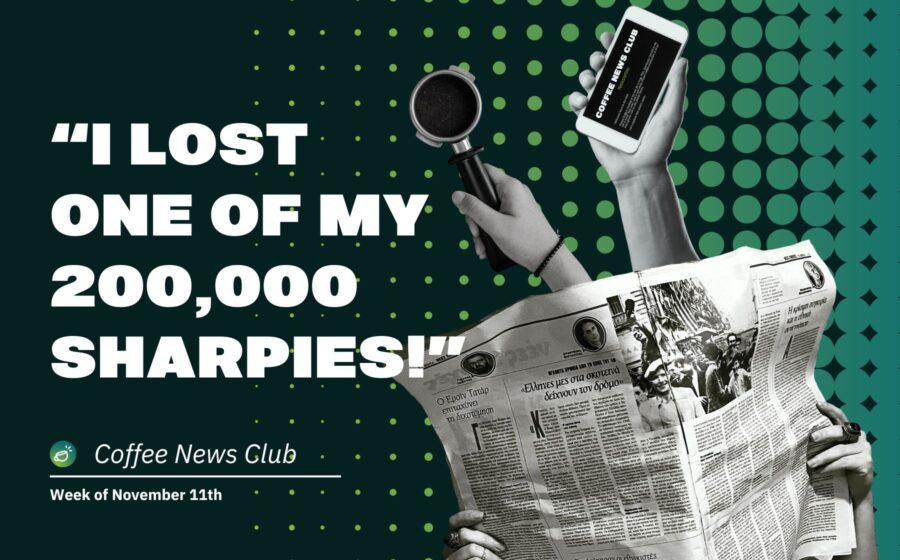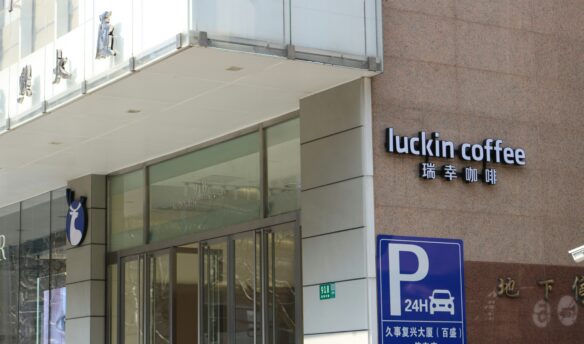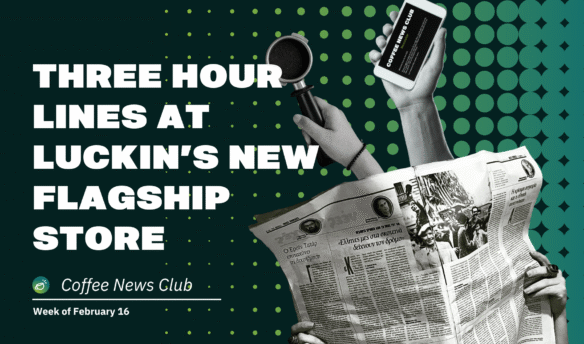How do you spell that? Starbucks will start writing names on cups again. Plus, the SCA launches new coffee evaluation procedures, and it turns out that being pro-union is good for business.
‘SCA Officially Adopts New Cupping Forms and Standards’ – via Daily Coffee News
After several years of development and over a year in beta testing mode, the Specialty Coffee Association (SCA) has officially adopted a new set of cupping standards, collectively known as the Coffee Value Assessment (CVA).
In two decades, the SCA has made no significant revision to the cupping protocol and form, widely used within the industry to make green coffee purchasing decisions. The current form relies on a single 100-point score to evaluate the quality of coffee without considering any broader context. The new standards aim to deliver “a holistic picture of a coffee’s unique sensory and affective attributes” while shifting away from “the limitations of a singular cupping score to describe a coffee,” according to a press release.
The new CVA is made up of three parts:
- Sample preparation and tasting mechanics, which include guidelines for how to set up a coffee cupping correctly.
- The sensory descriptive assessment, where users will record a coffee’s objective sensory attributes—think words like sweetness, mouthfeel, and acidity.
- And the affective assessment, which is more subjective and considers tasters’ preferences and personal experiences.
“The adoption of these components in the Coffee Value Assessment system as the new official SCA Standards marks a pivotal step forward superseding the standards of the 2004 cupping protocol, reflecting our commitment to making specialty coffee more sustainable, equitable, and thriving for the entire value chain,” said SCA CEO Yannis Apostolopoulos.
“These standards empower actors across the supply chain to make informed, value-driven decisions, aligning with our mission to engage and inspire a global community through authentic practices that uphold the true value of specialty coffee across the globe.”
The standards are now available for free on the SCA website.
‘An Asian-Owned KC Coffee Shop was Vandalized After the Election. Was it Targeted?’ – via The Kansas City Star
At 1:50 a.m. on Wednesday, November 6, a masked individual stopped their car outside Café Cà Phê in Kansas City, got out, and threw a rock at the shop’s glass door and window.
The cafe’s owner, Jackie Nguyen, told PJ Green from the Kansas City Star that she felt it was a targeted attack. The person didn’t try to enter or take anything from the business, and CCTV images show they drove away after throwing the rock several times. Because of this, the staff is treating the incident as a hate crime. “There was no intent to steal, which actually feels more heartbreaking to me than anything,” Nguyen said.
Café Cà Phê had been attacked twice before. Nguyen says those were simple burglaries for which she had no animosity. “I saw the intention,” she said, noting that the thieves were people who were struggling.
Nguyen has been a longtime activist in Kansas City and was a vocal supporter of Kamala Harris before the election. She said the local response to the incident has been heartening: “This community is unstoppable, and I’m very, very, very grateful for the community. It’s an exchange. Our community shows up just as much as we show up for them, and we know that, they know that.”
Meanwhile, in the wake of the election, the owners of Strange Matter Coffee in Lansing, Michigan put paper over its windows to protect staff from harassment. The papered windows are “a temporary solution for the haterz filming through the windows and harassing customers and staff,” the team at Strange Matter wrote on Instagram on November 8. The queer-owned coffee business has been the target of harassment in the past.
‘Starbucks’ Plan to Return to Its Roots Involves 200,000 Sharpies’ – via CNBC
We’ve been covering the various schemes that new Starbucks CEO Brian Niccol has come up with to revitalize the ailing brand. His plans include getting rid of discounts, bringing back ceramic cups and comfy seats, and addressing chronic understaffing issues.
But this latest gambit may prove his most ingenious: bringing back the Sharpie.
That’s right; Starbucks will soon return to writing customer names on the sides of their to-go cups by hand rather than printing names and orders on stickers. Niccol told CNBC that this will give baristas “the opportunity to put that additional human touch on every coffee experience.”
According to the Starbucks website, the coffee giant began writing customers’ names on cups to “honor everyone who walked through the door as an individual.” That changed in 2020 as the company switched to printed labels at the beginning of the COVID-19 pandemic.
Depending on your age, you might remember the good old days when a barista would hand you a cup with your name spelled wrong. If you’ve never had the pleasure, there’s a Starbucks wrong name generator (say hello to Coffee News Club writer Flow).
So many people’s names were misspelled that it even spawned a conspiracy theory that the misspellings were intentional and designed to compel drinkers to post their cups to social media and thus increase the company’s name recognition.
In the end, perhaps the real winners of this change (aside from Newell Brands Inc., owner of the Sharpie brand) will be the listicle websites like Buzzfeed and Thrillist, who can finally update their ’36 Starbucks Name Fails That Are So Bad They’re Actually Good’ articles.
More News
‘Cornell University & World Coffee Research Team Up For New Coffee Improvement Program’ – via Sprudge
‘Coffee with a View of… North Korea? Starbucks Eyes Border Observatory Opening.’ – via Korea JoonAng Daily
‘Spent Coffee Grounds Make Biodegradable Food Packaging’ – via STiR Coffee & Tea Magazine
‘Boston Tea Party Urges UK Coffee Chains to Ban Single-use Cups’ – via World Coffee Portal
‘The Sync System By La Marzocco And Mahlkönig Is Live’ – via Sprudge
‘Introducing India’s New International Coffee Festival’ – via STiR Coffee & Tea Magazine
The Week in Coffee Unionizing
It turns out that supporting your employees when they decide to form a union can positively impact a coffee shop’s public image.
In contrast to other notable unionization stories in the coffee industry, C. Terrence Anderson of newly-opened Bichota Coffee in Minneapolis, Minnesota, decided to support his staff’s unionization. He did so before his cafe even opened.
As reported by Dustin Nelson in Bring Me The News, Anderson signed a labor peace agreement with Unite Here Local 17 more than a year before opening Bichota, essentially agreeing to stay neutral during any organizing campaign. “I felt pretty unafraid to essentially make the first decision that I made as a business to sign a labor peace agreement,” Anderson said, “which essentially just said that, ‘Hey, it’s your choice as workers. I’m not going to deter you. Have the conversations that you guys want to have with each other and with the union, and let me know. I’m here to support you all in the way that you want to be supported.’”
During interviews, Anderson told potential hires about the peace agreement, which he said accounts for the quality and talent of the people who applied to work at the store. Anderson hopes to agree on a collective bargaining contract by early 2025.
This approach differs from most unionizing drives in the coffee industry. Many union efforts have been instigated by poor working conditions and accusations of workplace malfeasance and are often marked by union-busting and retaliation from ownership.
Anderson said that community response has been overwhelmingly positive. “I walked in on Monday, just bringing some stuff into the café and [someone] was like, ‘Hey congratulations on the union,’” he said. “A couple of customers are like, ‘This is the most progressive shit I’ve ever seen.’ Customers have been like, ‘What the hell is going on?’”








